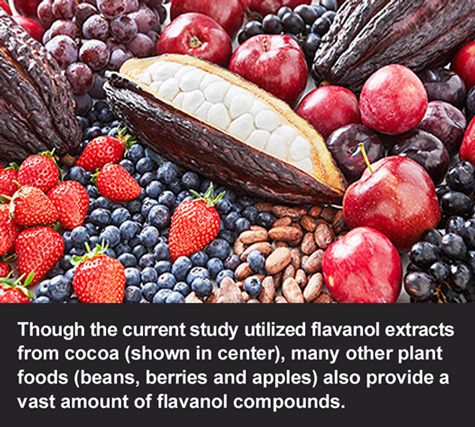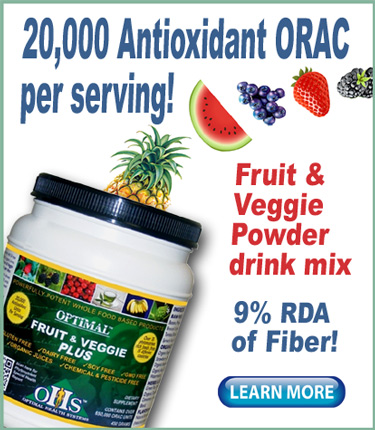A new large-scale random control trial has found that supplementing with flavanols is able to improve memory scores of older adults. Moreover, the beneficial effects of the flavanol supplementing was sustained over a three year follow-up.
The researchers found that the flavanol supplementing was particularly effective when it was added to the diet of study subjects who had sub-optimal diets.
In this particular study cocoa flavanols were used; however, it should be noted this is not the same cocoa found in highly-processed (and sugared) chocolate candy bars. Though cocoa is high in flavanols in its natural state, very little of the original nutritional profile remains by the time cocoa is processed into candy.
What are flavanols?
Flavanols are a group of nutrient compounds that are found in many plants. They can be found in most fruits, and in berries, beans, nuts, and tea.
Though the current study focuses on brain function, flavanols have been studied for a vast array of benefits. The long list of benefits include antioxidation, cardioprotection, antibacterial, antiviral and anticancer activity.
There are two main groups of flavanols—catechin and epicatechin—with many different subgroups. Each plant contains different combinations of flavanols, with different effects on the body. That means that not all flavanols are created equal, and that a wide variety of different foods are needed to receive the maximum benefit.
For example, a serving of beans, blueberries or tea may all contain the same amount of total flavanols, but they are made up of completely different types of flavanols. This means each one likely has a different effect on health.
This is the primary reason why flavanols extracted from cocoa are popular for scientific nutrition studies: they make an ideal model, as they contain the two main types of flavanols.
It also allows researchers to calculate which other foods are likely to have benefits based on how similar the compounds they contain are to cocoa flavanols.
Study method
The study included the recruitment of 3,562 older adults, with an average age of 71 years. Participants were randomly assigned to be administered either 500mg of cocoa flavanols per day or the placebo, over a three-year intervention period.
Diet quality and flavanol intakes were measured at baseline using the alternative Healthy Eating Index, whilst urine based biomarkers were obtained in some participants.
Scores for memory were assessed by three cognitive measures: the ModRey for hippocampal memory function, Flanker test, and ModBent.
Focus on hippocampus
As the name implies “hippocampal memory function” refers to the ability of the brain’s hippocampus. Like many parts of the brain’s limbic system, the hippocampus is involved in memory, learning, and emotion. Its largest job is to hold short-term memories and transfer them to long-term storage in our brains.
Because memory is involved in nearly everything we do, this structure is extremely important to everyday life. Because of its complex role, the hippocampus has connections to, and can “talk” to, several other parts of the brain. The most important of these communications include storing memories, transferring short-term memory to long-term, and spatial navigation.
Study results
In the new study, it was established that baseline diet and habitual flavanol intakes were positively correlated with hippocampal-dependent memory. Furthermore, in those with lower dietary quality scores or flavanol consumption, it was reported that the flavanol intervention significantly improved scores in the ModRey test, suggesting restored hippocampal-dependent memory.
“Just like there are specific constituents of our diets that are vital for the developing brain, other dietary constituents might be important for the aging brain. This study, a culmination of 15 years of research from mice to humans, provides biomarker-based evidence that dietary consumption of flavanols… can be etiologically linked to age-related memory decline,” the researchers wrote in the published results.
The study was published at PNAS in May 2023.
Ramp up your daily intake of flavanols with Optimal Fruit & Veggie Plus. Learn more by clicking the banner ad on this page.
– – –
Sources: PNAS.org, Wikipedia (catechin and epicatechin).


